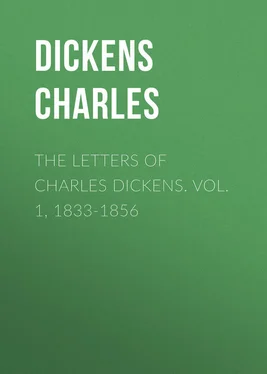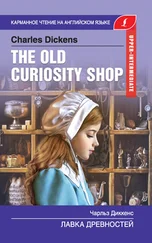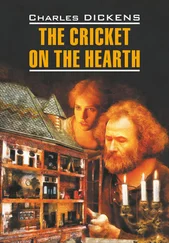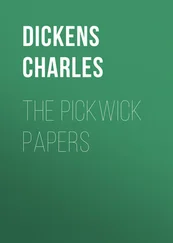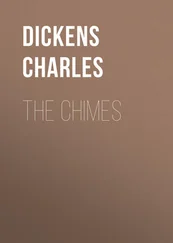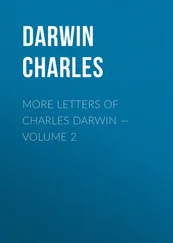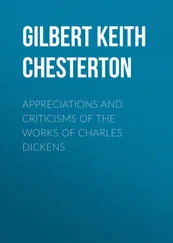Чарльз Диккенс - The Letters of Charles Dickens. Vol. 1, 1833-1856
Здесь есть возможность читать онлайн «Чарльз Диккенс - The Letters of Charles Dickens. Vol. 1, 1833-1856» — ознакомительный отрывок электронной книги совершенно бесплатно, а после прочтения отрывка купить полную версию. В некоторых случаях можно слушать аудио, скачать через торрент в формате fb2 и присутствует краткое содержание. Жанр: foreign_antique, foreign_prose, на английском языке. Описание произведения, (предисловие) а так же отзывы посетителей доступны на портале библиотеки ЛибКат.
- Название:The Letters of Charles Dickens. Vol. 1, 1833-1856
- Автор:
- Жанр:
- Год:неизвестен
- ISBN:нет данных
- Рейтинг книги:5 / 5. Голосов: 1
-
Избранное:Добавить в избранное
- Отзывы:
-
Ваша оценка:
- 100
- 1
- 2
- 3
- 4
- 5
The Letters of Charles Dickens. Vol. 1, 1833-1856: краткое содержание, описание и аннотация
Предлагаем к чтению аннотацию, описание, краткое содержание или предисловие (зависит от того, что написал сам автор книги «The Letters of Charles Dickens. Vol. 1, 1833-1856»). Если вы не нашли необходимую информацию о книге — напишите в комментариях, мы постараемся отыскать её.
The Letters of Charles Dickens. Vol. 1, 1833-1856 — читать онлайн ознакомительный отрывок
Ниже представлен текст книги, разбитый по страницам. Система сохранения места последней прочитанной страницы, позволяет с удобством читать онлайн бесплатно книгу «The Letters of Charles Dickens. Vol. 1, 1833-1856», без необходимости каждый раз заново искать на чём Вы остановились. Поставьте закладку, и сможете в любой момент перейти на страницу, на которой закончили чтение.
Интервал:
Закладка:
"Secondly. That a subscription be opened for the purchase of a piece of silver plate, and that Captain Hewett be respectfully requested to accept it, as a sincere expression of the sentiments embodied in the foregoing resolution.
"Thirdly. That a committee be appointed to carry these resolutions into effect; and that the committee be composed of the following gentlemen: Charles Dickens, Esq., E. Dunbar, Esq., and Solomon Hopkins, Esq."
The committee having withdrawn and conferred with Captain Hewett, returned, and informed the meeting that Captain Hewett desired to attend and express his thanks, which he did.
The amount of the subscription was reported at fifty pounds, and the list was closed. It was then agreed that the following inscription should be placed upon the testimonial to Captain Hewett:
Thanks were then voted to the chairman and to the secretary, and the meeting separated.
My dear Mitton,
I am so exhausted with the life I am obliged to lead here, that I have had time to write but one letter which is at all deserving of the name, as giving any account of our movements. Forster has it, in trust, to tell you all its news; and he has also some newspapers which I had an opportunity of sending him, in which you will find further particulars of our progress.
We had a dreadful passage, the worst, the officers all concur in saying, that they have ever known. We were eighteen days coming; experienced a dreadful storm which swept away our paddle-boxes and stove our lifeboats; and ran aground besides, near Halifax, among rocks and breakers, where we lay at anchor all night. After we left the English Channel we had only one fine day. And we had the additional discomfort of being eighty-six passengers. I was ill five days, Kate six; though, indeed, she had a swelled face and suffered the utmost terror all the way.
I can give you no conception of my welcome here. There never was a king or emperor upon the earth so cheered and followed by crowds, and entertained in public at splendid balls and dinners, and waited on by public bodies and deputations of all kinds. I have had one from the Far West – a journey of two thousand miles! If I go out in a carriage, the crowd surround it and escort me home; if I go to the theatre, the whole house (crowded to the roof) rises as one man, and the timbers ring again. You cannot imagine what it is. I have five great public dinners on hand at this moment, and invitations from every town and village and city in the States.
There is a great deal afloat here in the way of subjects for description. I keep my eyes open pretty wide, and hope to have done so to some purpose by the time I come home.
When you write to me again – I say again, hoping that your first letter will be soon upon its way here – direct to me to the care of David Colden, Esq., New York. He will forward all communications by the quickest conveyance and will be perfectly acquainted with all my movements.
Always your faithful Friend.My dear Sir,
Will you come and breakfast with me on Tuesday, the 22nd, at half-past ten? Say yes. I should have been truly delighted to have a talk with you to-night (being quite alone), but the doctor says that if I talk to man, woman, or child this evening I shall be dumb to-morrow.
Believe me, with true regard, Faithfully your Friend.My dear Friend,
I beg your pardon, but you were speaking of rash leaps at hasty conclusions. Are you quite sure you designed that remark for me? Have you not, in the hurry of correspondence, slipped a paragraph into my letter which belongs of right to somebody else? When did you ever find me leap at wrong conclusions? I pause for a reply.
Pray, sir, did you ever find me admiring Mr. – ? On the contrary, did you never hear of my protesting through good, better, and best report that he was not an open or a candid man, and would one day, beyond all doubt, displease you by not being so? I pause again for a reply.
Are you quite sure, Mr. Macready – and I address myself to you with the sternness of a man in the pit – are you quite sure, sir, that you do not view America through the pleasant mirage which often surrounds a thing that has been, but not a thing that is? Are you quite sure that when you were here you relished it as well as you do now when you look back upon it. The early spring birds, Mr. Macready, do sing in the groves that you were, very often, not over well pleased with many of the new country's social aspects. Are the birds to be trusted? Again I pause for a reply.
My dear Macready, I desire to be so honest and just to those who have so enthusiastically and earnestly welcomed me, that I burned the last letter I wrote to you – even to you to whom I would speak as to myself – rather than let it come with anything that might seem like an ill-considered word of disappointment. I preferred that you should think me neglectful (if you could imagine anything so wild) rather than I should do wrong in this respect. Still it is of no use. I am disappointed. This is not the republic I came to see; this is not the republic of my imagination. I infinitely prefer a liberal monarchy – even with its sickening accompaniments of court circulars – to such a government as this. The more I think of its youth and strength, the poorer and more trifling in a thousand aspects it appears in my eyes. In everything of which it has made a boast – excepting its education of the people and its care for poor children – it sinks immeasurably below the level I had placed it upon; and England, even England, bad and faulty as the old land is, and miserable as millions of her people are, rises in the comparison.
You live here, Macready, as I have sometimes heard you imagining! You! Loving you with all my heart and soul, and knowing what your disposition really is, I would not condemn you to a year's residence on this side of the Atlantic for any money. Freedom of opinion! Where is it? I see a press more mean, and paltry, and silly, and disgraceful than any country I ever knew. If that is its standard, here it is. But I speak of Bancroft, and am advised to be silent on that subject, for he is "a black sheep – a Democrat." I speak of Bryant, and am entreated to be more careful, for the same reason. I speak of international copyright, and am implored not to ruin myself outright. I speak of Miss Martineau, and all parties – Slave Upholders and Abolitionists, Whigs, Tyler Whigs, and Democrats, shower down upon me a perfect cataract of abuse. "But what has she done? Surely she praised America enough!" "Yes, but she told us of some of our faults, and Americans can't bear to be told of their faults. Don't split on that rock, Mr. Dickens, don't write about America; we are so very suspicious."
Freedom of opinion! Macready, if I had been born here and had written my books in this country, producing them with no stamp of approval from any other land, it is my solemn belief that I should have lived and died poor, unnoticed, and a "black sheep" to boot. I never was more convinced of anything than I am of that.
Читать дальшеИнтервал:
Закладка:
Похожие книги на «The Letters of Charles Dickens. Vol. 1, 1833-1856»
Представляем Вашему вниманию похожие книги на «The Letters of Charles Dickens. Vol. 1, 1833-1856» списком для выбора. Мы отобрали схожую по названию и смыслу литературу в надежде предоставить читателям больше вариантов отыскать новые, интересные, ещё непрочитанные произведения.
Обсуждение, отзывы о книге «The Letters of Charles Dickens. Vol. 1, 1833-1856» и просто собственные мнения читателей. Оставьте ваши комментарии, напишите, что Вы думаете о произведении, его смысле или главных героях. Укажите что конкретно понравилось, а что нет, и почему Вы так считаете.
